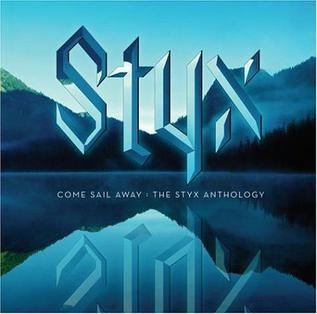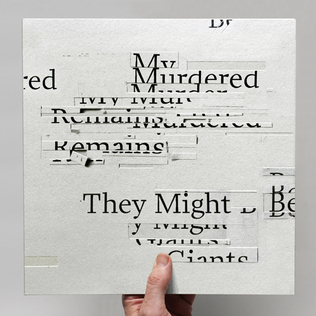
Holograf is a pop rock band from Bucharest, Romania. Since the band's formation in 1978, Holograf released 18 albums. The band won the Excellence Prize at Romanian Media Music Awards in 2013, the awards for best pop-rock artist and best pop-rock song at Radio Romania Music Awards Gala in 2014 and was nominated multiple times at Romanian Music Awards for Best Group and for Best Song.
Luna Amară is a Romanian rock band from Cluj-Napoca. The band, which was founded in 1999 under the name Tanagra Noise, consists of Mihnea Blidariu, Nick Făgădar, Sorin Moraru (bass), Răzvan Ristea (drums) and Andrei Boțan. The band's name translates to Bitter Moon, and is borrowed from the Roman Polanski movie of the same name, inspired by the eponymous novel written by Pascal Bruckner. As of 2018, Luna Amară have released six studio albums.

Iris is a Romanian rock band established in February 1977 by Ioan 'Nelu' Dumitrescu (drums), Ion 'Nuțu' Olteanu and Emil Lechințeanu. They achieved success, followed by tours throughout Romania and recordings for radio broadcast. At the 2006 MTV Romania Music Awards, Iris won the Best Rock Award and were nominated for Best Band and Best Live Act.

You Can't Do That on Stage Anymore, Vol. 3 is a double disc live album by Frank Zappa, spanning from December 10, 1971, to December 23, 1984. It was released in 1989.

Come Sail Away – The Styx Anthology is a musical album by Styx, released on May 4, 2004. It is a compilation consisting of two compact discs and contains a thorough history of the band. The album encompasses many of the band's most popular and significant songs, ranging from the band's first single from their self-titled album, "Best Thing", through the song "One with Everything", a track included on Styx's most recent album at the time of release, Cyclorama.

Voltaj is a Romanian pop rock group. They are widely regarded as one of the most successful bands in Romanian History, with songs such as “20”, “De la Capăt” and “De Maine” being household hits. Their songs “MSD2” and “Din toata inima” are viewed by some as unofficial national anthems for Romania.

Daniel Amos is an American Christian rock band formed in 1974 by Terry Scott Taylor on guitars and vocals, Marty Dieckmeyer on bass guitar, Steve Baxter on guitars and Jerry Chamberlain on lead guitars. The band currently consists of Taylor, guitarist Greg Flesch and drummer Ed McTaggart. Over the band's career, they have included keyboardist Mark Cook, drummer Alex MacDougall, bassist Tim Chandler and keyboardist Rob Watson with sounds that experimented with country rock, rock, new wave and alternative rock.
Ram-Zet is an avant-garde metal band formed in Hamar, Norway in 1998.

Alternosfera is an alternative rock band from Chişinău, Republic of Moldova. They started their career in 1998 in highschool with their first album, Oraşul 511.

Romanian rock is a genre of popular music in Romania. It was influenced by changes in Romanian politics to such an extreme, that both the themes and styles of musicians, and the tastes and interests of listeners, changed dramatically with every major event in Romania's internal politics.

Live at the Rotterdam Ahoy is a live album recorded by Deep Purple on 30 October 2000 and released in 2001. It includes most of a concert performed in Rotterdam, the Netherlands during the 2000/2001 "Concerto Tour". The Concerto for Group and Orchestra itself was performed, but it does not appear on the album due to "legal requirements". Some tracks are solo compositions by members of the band, two are songs originally recorded by guest Ronnie James Dio, and the remainder are a mix of new and old Deep Purple songs.

Adriana-Laurenția "Laura" Stoica was a Romanian pop rock singer, composer and actress. She is often considered the best female rock vocalist and one of the most important figures of the local Romanian music scene. Between 1990 and 2005, Stoica recorded 4 studio albums, she performed in over 700 shows in her country and abroad, and had over 650 television appearances.
Dan Andrei Aldea was a Romanian multi-instrumentalist and vocalist, best known for his work with the band Sfinx, but also for his solo career.
Electrecord is a Romanian record label which was founded in 1932. It was subsequently transformed into the national recording company following the socialist doctrine of centralization and was the only record label in Communist Romania.

The Amsterdams are a Romanian indie rock band formed in Bucharest in 2005. Their current line-up consists of Andrei Hațegan, Ovidiu Bejan, Andrei Ungureanu, Dragoș Crifca and Gabriel Ciocan.

The Black Album/Come On Feel The Dandy Warhols is a 2004 double album released by American alternative band, The Dandy Warhols. The two-disc set was released on their own Beat the World Records label. Initially, the album was only available to purchase through the band's website. It is now available to own via other sources.

The Who Hits 50! is a compilation of singles by the English rock band The Who, released in 2014 by Polydor Records. The two-disc set contains every single released by the band in the United Kingdom, with the exceptions of: "A Legal Matter" and "La-La-La-Lies" from 1966; and "Long Live Rock" and the remake of "I'm One" from 1979. At the same time it also contains every single by the band released in the United States throughout their career, with the exceptions of: "The Real Me" from 1974; the reissue of "Substitute" from 1976; and "Long Live Rock" from 1979. A condensed single-disc standard edition appeared as well, both versions in conjunction with the band's 50th anniversary and associated tour of the same name. The album is notable for containing singles generally not included on other compilation albums, such as the band's Rolling Stones cover "The Last Time" done as an act of solidarity while Mick Jagger and Keith Richards were facing jail time, along with other lesser-known singles "Dogs" and "Call Me Lightning".

My Murdered Remains is the 21st album by American alternative rock band They Might Be Giants, released on December 10, 2018 for digital download and pre-order. The physical album was released in the spring of 2019. The digital download and pre-order was released simultaneously with The Escape Team. The standard disc consists entirely of songs from the band’s 2018 Dial-a-Song project; a bonus disc is included which also features songs from the similar 2015 Dial-a-Song project which had yet to be released on an album, as well as a new song entitled "This is Only Going to Go One Way."

Pasărea Rock is a Romanian rock supergroup formed in February 2014, in Bucharest, Romania by three former members of the legendary band Transsylvania Phoenix: Mircea Baniciu, Josef Kappl (bass), and Ovidiu Lipan (drums). The first line-up included another Transsylvania Phoenix member — Cristi Gram on lead guitar — along with Vlady Cnejevici on keyboards and Teo Boar on guitar. Later, they were replaced by Sorin Voinea (keyboards) and Nicu Patoi.















